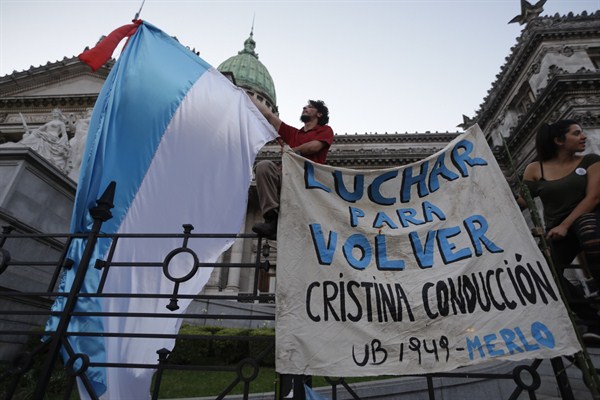When Argentina’s president, Mauricio Macri, presented a serious proposal to foreign bondholders last week, he took one more step along a path that leads away from the country’s dozen years of leftist populism at the hands of former President Cristina Fernandez de Kirchner and her predecessor and late husband, Nestor Kirchner. In fact, Macri’s offer to creditors, whatever its ultimate fate, represents a blow to the very structure of Kirchnerismo, whose economic and foreign policies he is dismantling with breathtaking speed.
Macri’s election in 2015, as is now evident, follows a global trend of dissatisfaction that favors candidates from outside the establishment. He is the first Argentine president in a century who doesn’t belong to either of the two main parties, the Peronistas and the Radicals.
From the moment he won the election, he made it clear he would set out not just to gradually roll back the Kirchners’ policies, but to reverse course sharply, even if the moves come at the risk of high political costs. Macri’s decisions since then confirm that he is not a populist. He is a free-marketer, and he believes that market forces will set the country on the right path, even if it has to endure a considerable amount of pain before the benefits of reform become tangible.

